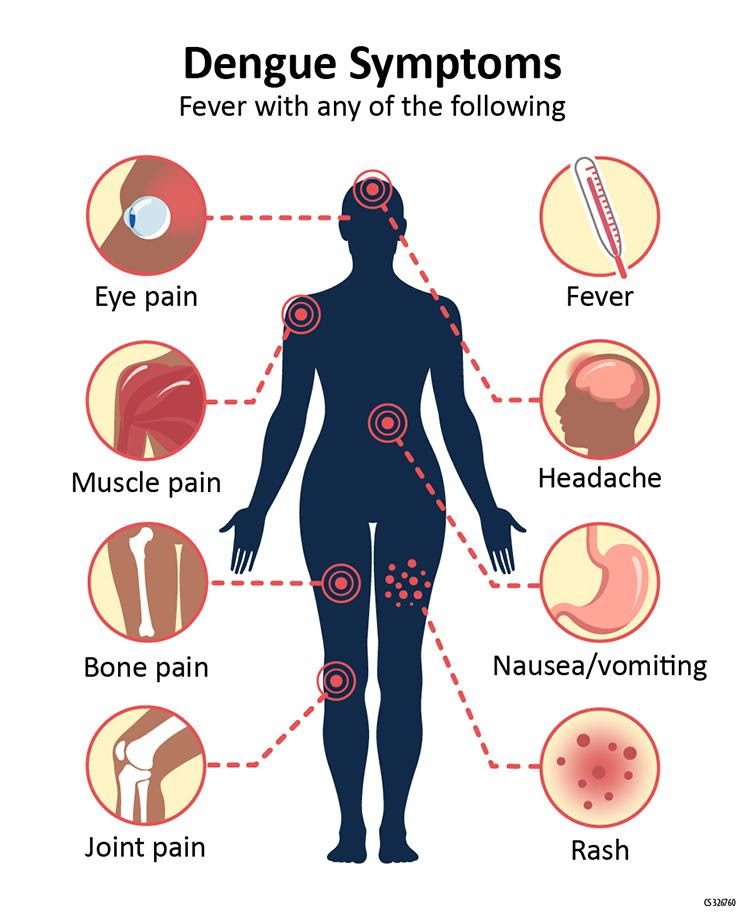
Health Commissioner Justa Encarnacion is encouraging the public to become familiar with the symptoms of dengue, the mosquito-borne virus, and the best courses of action for treatment.
“According to the CDC, dengue viruses and the virus that causes COVID-19 can have similar symptoms in the early stages,” said Encarnacion. “It’s important that everyone understands the difference between the two and how to treat the symptoms of dengue.”
The most common symptom of dengue is fever with any of the following: nausea, vomiting, rash, aches and pains (eye pain, typically behind the eyes, muscle, joint or bone pain). Symptoms of dengue typically last two to seven days and most people will recover after about a week. The mosquito that spreads dengue bites mostly at dawn and dusk.
“Individuals experiencing dengue symptoms should contact their primary care doctor and get tested for the virus with a blood test,” said Encarnacion. “Rest as much as possible and take acetaminophen. Do not take aspirin or ibuprofen.”
About one in 20 people who get sick with dengue will develop severe dengue, according to the CDC (Center for Disease Control). Infants, pregnant women and individuals who had dengue in the past are more likely to develop severe dengue.
Severe dengue usually occurs 24 to 48 hours after a fever has passed. Symptoms include belly pain, tenderness, vomiting (at least three times in 24 hours), bleeding from the nose or gums, vomiting blood or blood in the stool, and feeling tired, restless or irritable.
“If you are experiencing the symptoms of severe dengue, go to the Emergency Room or see your healthcare provider immediately,” said the commissioner.
People with COVID-19 have symptoms ranging from mild symptoms to severe illness. Symptoms may appear 2 to 14 days after exposure to the virus via person-to-person transmission. People with these symptoms may have COVID-19: fever or chills, cough, shortness of breath or difficulty breathing, fatigue, muscle or body aches, headache, new loss of taste or smell, sore throat, congestion or runny nose, nausea or vomiting and diarrhea.
Recently, Puerto Rico declared a State of Emergency due to dengue with 549 cases reported this year, a record high. The USVI has a total of three reported cases; however, the V.I. Department of Health is concerned that the territory may see a spike following Puerto Rico’s outbreak.
Earlier to this week, the V.I. Department of Health issued a news release advising the public to take steps to prevent dengue by removing standing water from around the home to stop mosquitoes from breeding and by using Environmental Protection Agency-approved repellent to prevent mosquito bites.
For more information about dengue prevention, symptoms and treatment visit Dengue | CDC at https://www.cdc.gov/dengue/.





